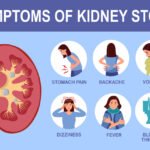Male infertility is a common issue affecting many couples trying to conceive. While the causes of male infertility can vary, advancements in medical treatments offer hope for those seeking solutions. From lifestyle changes to assisted reproductive technologies, several treatment options are available to help men improve their fertility and increase the chances of conception. In this article, we will explore the different treatment options for male infertility, ranging from non-invasive methods to surgical interventions.

Lifestyle Changes
In many cases, male infertility can be influenced by lifestyle factors such as diet, exercise, and overall health. Making certain changes to daily habits can significantly improve fertility. Here are some of the most effective lifestyle changes:
- Healthy Diet: A diet rich in vitamins and minerals, especially those beneficial for sperm health, can improve sperm count and motility. Focus on foods high in antioxidants, zinc, folate, and omega-3 fatty acids, such as fruits, vegetables, nuts, and fatty fish.
- Regular Exercise: Engaging in moderate exercise can help maintain a healthy weight and balance hormones, which are essential for optimal sperm production. However, it’s important to avoid excessive exercise, as it can have a negative impact on fertility.
- Quitting Smoking and Limiting Alcohol: Smoking and excessive alcohol consumption can harm sperm quality and reduce fertility. Stopping smoking and reducing alcohol intake can improve sperm health and increase the chances of conception.
- Managing Stress: Chronic stress can affect hormone production and sperm quality. Incorporating relaxation techniques, such as meditation, yoga, or deep breathing, can help manage stress levels and improve overall fertility.
These lifestyle adjustments can be a starting point for improving fertility, and many men may experience a positive impact after making these changes.
Medications
In some cases, male infertility can be treated with medications that address hormonal imbalances or other underlying issues. The type of medication prescribed will depend on the specific cause of infertility.
- Hormonal Therapy: If infertility is caused by hormonal imbalances, medications such as gonadotropins (LH and FSH) or clomiphene citrate may be used to stimulate sperm production. These hormones help regulate the production of testosterone and sperm.
- Anti-Estrogen Medications: For men with elevated estrogen levels that interfere with sperm production, anti-estrogen medications like tamoxifen may help balance hormones and improve fertility.
- Antibiotics: If a male infertility issue is caused by an infection in the reproductive tract, antibiotics may be prescribed to treat the infection and restore fertility.
Medications are typically used when infertility is caused by specific hormonal issues, infections, or other treatable conditions. A healthcare provider will conduct tests to determine whether medication is a suitable treatment option.
Surgical Treatments
In certain cases, surgical interventions may be necessary to address underlying causes of male infertility, such as blockages, varicoceles, or other anatomical issues.
- Varicocele Repair: A varicocele is a swollen vein in the scrotum that can interfere with sperm production. Surgical repair of a varicocele can improve sperm count and quality in some men. This procedure is typically done on an outpatient basis and involves sealing off the affected veins.
- Vasectomy Reversal: For men who have had a vasectomy in the past and later wish to have children, a vasectomy reversal may be an option. This surgery reconnects the vas deferens to restore sperm flow and fertility.
- Sperm Retrieval: If sperm production is low or absent, surgical sperm retrieval may be necessary. This procedure involves extracting sperm directly from the testicles or epididymis through a needle or small incision.
- Surgical Repair of Blockages: If a blockage in the reproductive tract is preventing sperm from reaching the semen, surgery may be required to remove the blockage and restore fertility.
Surgical treatments are generally considered when other less invasive methods have not been successful or when specific anatomical problems need to be addressed.
Conclusion
Male infertility can be caused by a variety of factors, including hormonal imbalances, anatomical issues, lifestyle choices, and medical conditions. The treatment options available depend on the underlying cause and severity of the infertility. Lifestyle changes, medications, surgical interventions, and assisted reproductive technologies (ART) can all play a role in improving fertility and increasing the chances of conception. If you are struggling with infertility, it is important to consult with a healthcare provider who can assess your situation and recommend the most appropriate treatment options to help achieve your goal of having children. With the right approach, many men can improve their fertility and achieve successful pregnancies with their partners.









